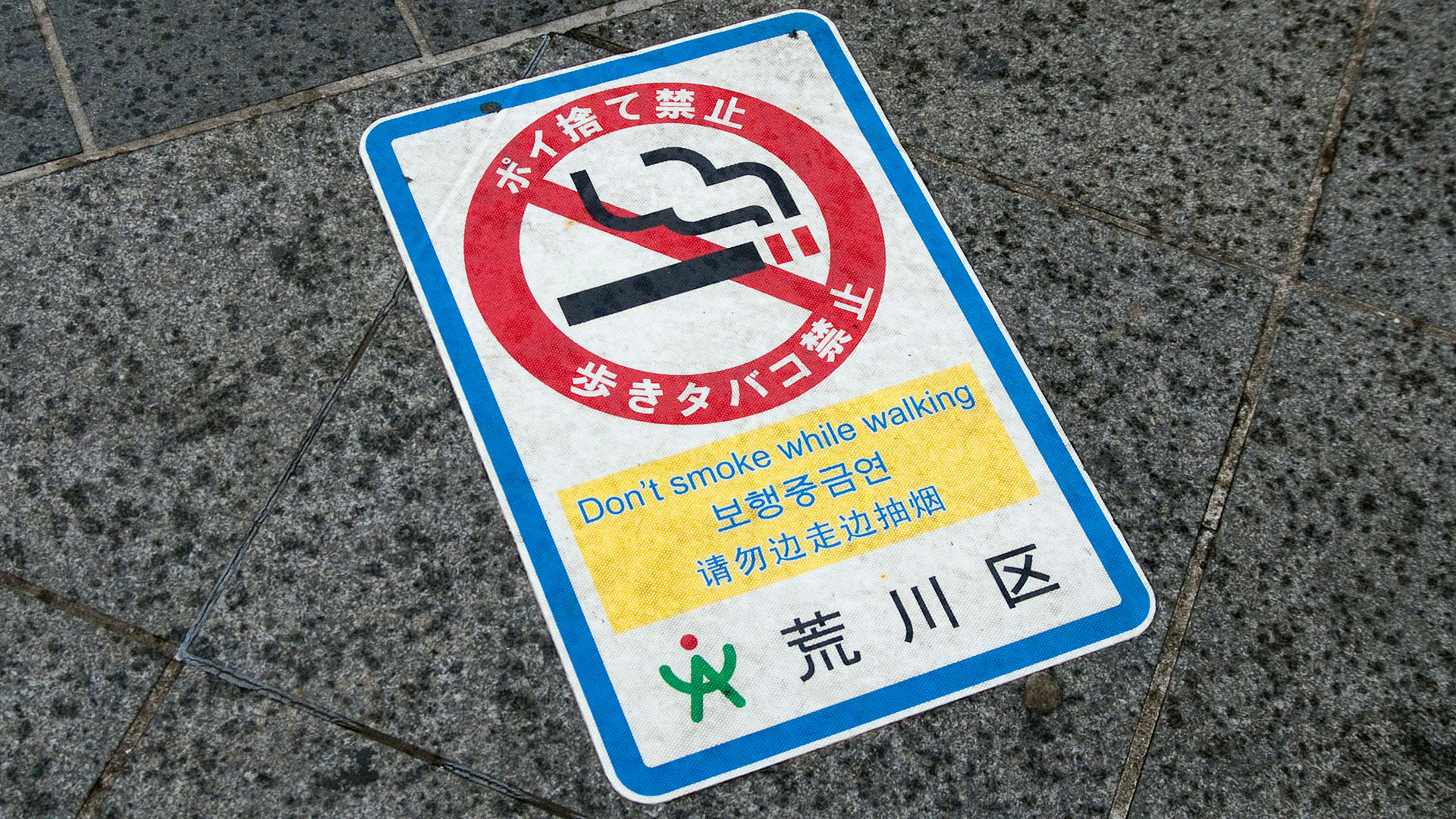Sompo Japan Nipponkoa Himawari, a life insurance company, announced in revised employment requirements that, starting next April, it will not be hiring new graduates who smoke. And Rohto, a pharmaceutical firm, says it will require a commitment from all applicants to quit smoking if they are hired.
Both companies say they will take employees and applicants at their word and not require them to submit to medical examinations.
Academic institutions are also taking similar measures. Nagasaki University announced it will not hire teachers and staff who smoke. Sojo University's Faculty of Pharmaceutical Sciences has been declining to accept students who smoke.
These moves have sparked debate on whether the exclusion of smokers can be considered discriminatory practice. The labor ministry, which is in charge of employment issues, says current laws only prohibit discriminatory recruitment based on age, gender or physical or mental disorders. It says it has notified companies to carry out fair recruitment processes, but that ultimately, they are allowed to make their own decisions.
The World Health Organization's Western Pacific Regional Office says it is not uncommon for smoking habits to weigh on recruitment in developed countries. The WHO itself says it asks applicants whether they smoke and require successful candidates to quit upon employment, offering counseling and a treatment program.

One of the reasons Japan is pushing to curb smoking may be to reduce medical expenses. It is estimated that the country incurs about 13.8 billion dollars per year in medical costs from smoking, including secondhand smoke. The figure is expected to balloon further if costs due to the lowered productivity of employees who constantly take smoke breaks during work hours, and costs incurred by employees on hospital leave are included.
Companies are increasingly embracing the concept of "health management". This is based in the view that a workplace is more productive and performs better with healthier employees.
These anti-smoking measures may be a drastic step in Japan, a place where groups of people huddled outside for a cigarette break is still a common sight. But the government, and these companies, think it is time to promote a healthier environment for everyone.

